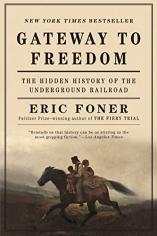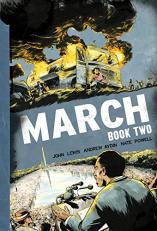January 2015
History Books Roundup: Reliving the Past
January 2015

January's roundup of History titles includes GATEWAY TO FREEDOM, in which Pulitzer Prize-winning historian Eric Foner tells the dramatic story of fugitive slaves and the antislavery activists who defied the law to help them reach freedom; THE TRAIN TO CRYSTAL CITY by Jan Jarboe Russell, the never-before-told story of a secret FDR-approved American internment camp in Texas during World War II, where thousands of families --- many US citizens --- were incarcerated; IN THESE TIMES, a beautifully observed history of the British home front during the Napoleonic Wars by celebrated historian Jenny Uglow; and MARCHING HOME, a groundbreaking investigation from Civil War historian Brian Matthew Jordan examining the fate of Union veterans who won the war but couldn’t bear the peace.























